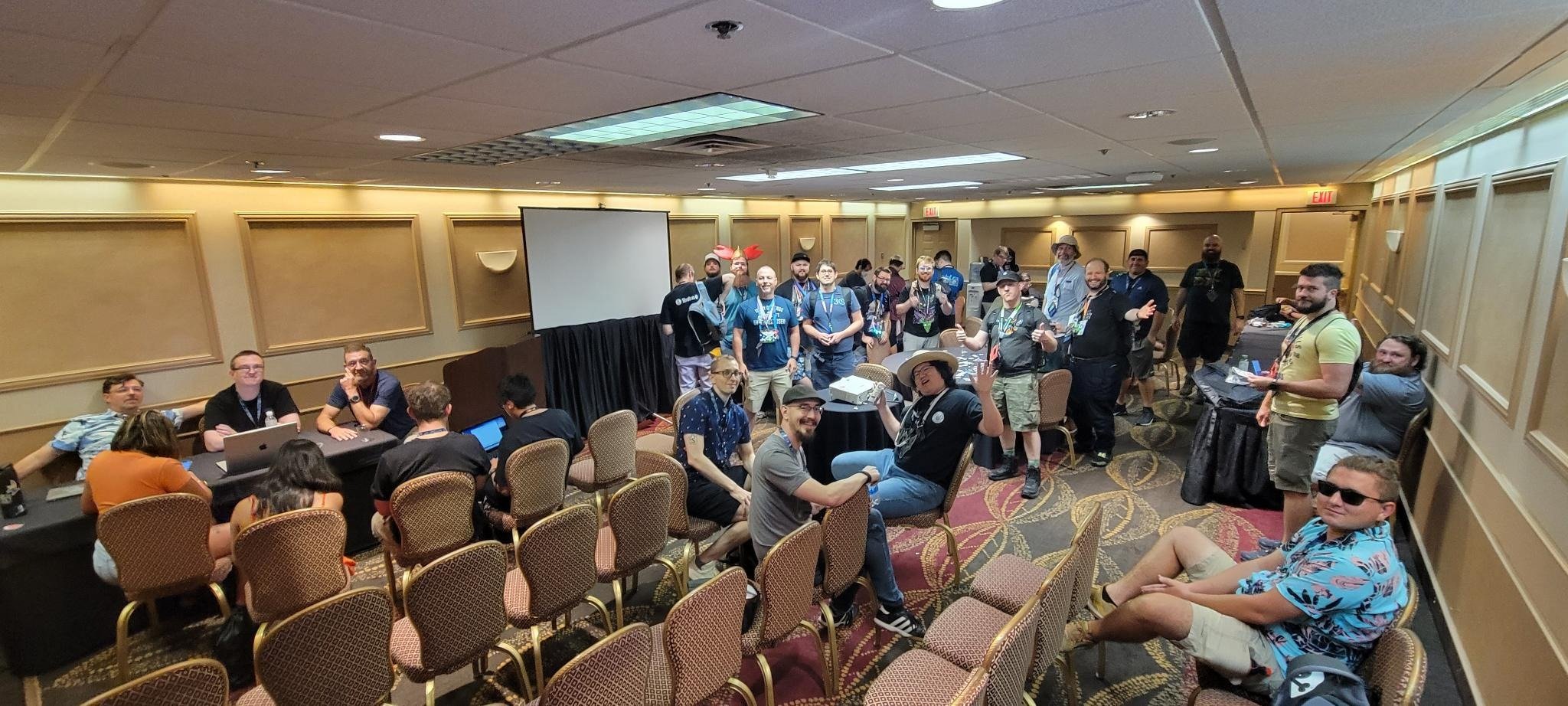Updating Your Resume
This isn’t something I normally write about. In fact I don’t consider myself much of an expert on this topic at all.
However, recently I was at a conference, and a friend of mine asked me to help out doing resume reviews and career advice for some members of the community. I was joined by three other experienced leaders (Seth van Ommen, Bill Tydeman, and Mike Guthrie), and we spent a few hours over the course of a couple of days helping out both early career and more experienced candidates get ready for their next step.
I’m going to heavily caveat this article by saying that these are just our opinions, based on what we like to see as hiring managers. There’s tons of advice out there on this topic so do your own research based on what you’re looking to achieve.
With all that said, these are some of the things we saw and recommended…
The Basics
This is going to sound obvious but it was surprising how many resumes we saw that had issues with the following:
Spelling
Grammar
Inconsistent tenses - for this we recommend either all past tense or present tense for the current role and past for previous roles
Simple formatting - this document needs to be super readable - don’t try to be too clever
I can’t overstate how important these things are. I’ve had candidates tell me they have “great attention to detail”, then have a resume with spelling errors. This is one of the most important documents you’ll ever create - if you don’t take this seriously how can we trust you to keep boring documentation accurately up to date?
In terms of the general layout:
Start with a profile statement, if you’re including one, then work experience, education, and skills. For first jobs, put your education and projects at the top.
Keep it simple - for each role, have the company and job title on the left and the dates on the right. Follow that with a brief overview of your responsibilities and then outline your achievements for the role.
If you decide to include a profile statement, keep it brief but real - try to express some passion or spark some interest - we saw far too many that were clearly written by ChatGPT, or just painfully generic.
Adaptation
As a general rule of thumb it’s a good idea to adapt your resume to the role that you’re applying for. This is particularly applicable if you are changing direction or if there are very specific skill or experience requirements for the new job.
If you’re applying for a role where certain technical skills are required, ensure that your resume includes all of those that are listed (if you have the skill of course). This can help with automated systems and simple HR screens. If possible, include how you actually used those skills within your recent roles - this is more meaningful to a hiring manager.
The author (second left) and some of our reviewees
Early Roles
As I mentioned earlier, if you have little work experience or are straight out of college or university, put your education at the top. Otherwise lead with your most recent experience.
This also may be a good time to use a profile statement as it gives us a greater insight into your character and ambitions.
We have little to go on with entry-level roles so this is where it’s important to show your experience via personal project work. This is especially relevant for technical roles - show us what you’re interested in and that will help you stand out from a thousand other fresh graduates.
Good managers will have an approach of “Hire for attitude, train for skill”, so if you are able to articulate your enthusiasm it could go a long way towards getting you to interview.
If you have gaps in your experience, think about what you did during that time, even if it wasn’t full time employment. For example, if you did some ad hoc consultancy work, you can and should reflect that on your resume.
Senior Roles
As you gain more experience, adjust your resume accordingly. The more senior the role the more we’re going to want to see your accomplishments, ideally in quantifiable form. These could be things like “Improved team efficiency by X%” or “Renegotiated supplier contract to save $YM”.
These become increasingly important the higher you climb, but are relevant whatever stage of your career you’re at. If you have quantifiables, put them in.
Cover Letters
Cover letters can be a good way to directly address why you think you’re the right person for the role. They also give you an opportunity to express a bit more personality. Just be aware however that it’s entirely possible that a cover letter might not even reach the hiring manager, so don’t forget to include key information in your resume itself.
Applying Internationally
Finally, the somewhat difficult subject of applying for international roles. The guidance here is really to adapt your application to the style of the country that you’re applying to. For example, some European countries prefer a much longer, more detailed, curriculum vitae style approach. Again, research and adapt as necessary.
Final Thoughts
However you decide to update your resume, keep it clean, simple, and update it on a regular basis. You never know when you might get approached with a new opportunity.
Good luck!!
When you're ready, I offer 1:1 coaching for leaders who are looking to take their life and career to the next level. Send me an email and we'll set up a time to have a chat.
If you found this useful, please consider subscribing to my newsletter here. You’ll receive articles like this in your inbox every couple of weeks. Thank you!
